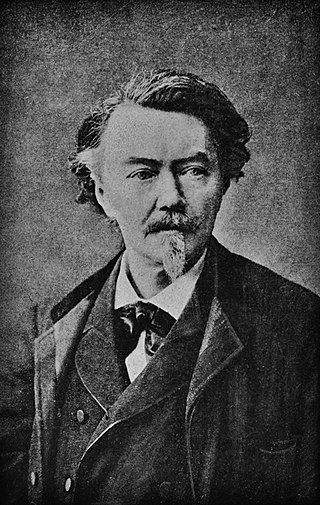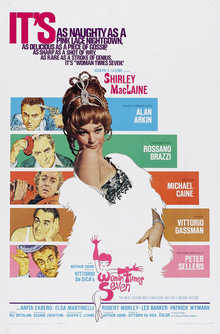Related Research Articles
An android is a humanoid robot or other artificial being often made from a flesh-like material. Historically, androids were completely within the domain of science fiction and frequently seen in film and television, but advances in robot technology now allow the design of functional and realistic humanoid robots.

Robot fetishism is a fetishistic attraction to humanoid robots; also to people acting like robots or people dressed in robot costumes. A less common fantasy involves transformation into a robot. In these ways it is similar to agalmatophilia, which involves attraction to or transformation into statues or mannequins.

A gynoid, or fembot, is a feminine humanoid robot. Gynoids appear widely in science fiction film and art. As more realistic humanoid robot design becomes technologically possible, they are also emerging in real-life robot design. Just like any other robot, the main parts of a Gynoid include sensors, actuators and a control system. Sensors are responsible for detecting the changes in the environment while the actuators, also called effectors, are motors and other components responsible for the movement and control of the robot. The control system instructs the robot on what to do so as to achieve the desired results.

Coppélia is a comic ballet from 1870 originally choreographed by Arthur Saint-Léon to the music of Léo Delibes, with libretto by Charles-Louis-Étienne Nuitter. Nuitter's libretto and mise-en-scène was based upon E. T. A. Hoffmann's short story Der Sandmann. In Greek, κοπέλα means young woman. Coppélia premiered on 25 May 1870 at the Théâtre Impérial de l'Opéra, with the 16-year-old Giuseppina Bozzacchi in the principal role of Swanhilda and ballerina Eugénie Fiocre playing the part of Frantz en travesti. The costumes were designed by Paul Lormier and Alfred Albert, the scenery by Charles-Antoine Cambon, and Édouard Desplechin and Jean-Baptiste Lavastre.

A gender bender is a person who dresses up and presents themselves in a way that defies societal expectations of their gender, especially as the opposite sex. Bending expected gender roles may also be called a genderfuck.
The Pioneer Award is given by the Science Fiction Research Association to the writer or writers of the best critical essay-length work of the year.

Pamela Rooke, also known as Jordan and Jordan Mooney, was an English model and actress known for her work with Vivienne Westwood and the SEX boutique in the Kings Road area of London in the mid-1970s, and for attending many of the early Sex Pistols performances. Her style and dress sense—a bleached platinum-blonde bouffant hairdo with dark raccoon-like eye make-up—made her a highly visible icon of the London punk subculture. Along with Johnny Rotten, Soo Catwoman and Siouxsie Sioux, she is credited with creating the London punk look.
"Welcome to the Monkey House" is a Kurt Vonnegut short story that is part of the collection of the same name. It is alluded to in God Bless You, Mr. Rosewater as one of Kilgore Trout's stories.

The Future Eve is a symbolist science fiction novel by the French author Auguste Villiers de l'Isle-Adam. Begun in 1878 and originally published in 1886, the novel is known for popularizing the term "Android".

Child's Play is an American horror comedy media franchise created by Don Mancini. The films mainly focus on Chucky, a notorious serial killer who frequently escapes death by performing a voodoo ritual to transfer his soul into a "Good Guy" doll. The original film, Child's Play, was released on November 9, 1988. The film has spawned six sequels, a television series, a remake, comic books, a video game, and tie-in merchandise. The first, second, and fourth films were box office successes with all of the films earning over $182 million worldwide. Including revenues from sales of videos, DVDs, VOD and merchandise, the franchise has generated over $250 million. It also won a Saturn Award for Best Horror Franchise.

Sex robots or sexbots are anthropomorphic robotic sex dolls that have a humanoid form, human-like movement or behavior, and some degree of artificial intelligence. As of 2018, although elaborately instrumented sex dolls have been created by a number of inventors, no fully animated sex robots yet exist. Simple devices have been created which can speak, make facial expressions, or respond to touch.

Air Doll is a 2009 Japanese drama film directed by Hirokazu Kore-eda. It is based on the manga series Kuuki Ningyo by Yoshiie Gōda, which was serialized in the seinen manga magazine Big Comic Original. It stars Bae Doona as an inflatable sex doll that develops consciousness and falls in love.

Woman Times Seven is a 1967 sex comedy anthology film directed by Vittorio De Sica. It consists of seven segments, all starring Shirley MacLaine, most of which deal with aspects of adultery.

The Mechanical Bride: Folklore of Industrial Man (1951) is a study of popular culture by Marshall McLuhan, treating newspapers, comics, and advertisements as poetic texts.

Bride of Chucky is a 1998 American black comedy horror film written by Don Mancini and directed by Ronny Yu. The fourth installment in the Child's Play franchise, it stars Jennifer Tilly, Brad Dourif, John Ritter, Katherine Heigl, and Nick Stabile. Unlike the first three films, Bride of Chucky takes a markedly humorous turn towards self-referential parody. It also departs from the Andy Barclay storyline of the first three films, focusing mainly on series villain Chucky, a doll possessed by a serial killer, and his former lover and accomplice Tiffany, whose soul is also transferred into a doll.

Seed of Chucky is a 2004 black comedy slasher film, the fifth installment of the Child's Play series, and sequel to 1998's Bride of Chucky as well as the first film to be distributed by another company since the original Child's Play. The film was written and directed by Don Mancini, who created the series and has written all of the films, and stars Jennifer Tilly, Redman, Hannah Spearritt, John Waters, Billy Boyd and Brad Dourif. With this entry, Mancini made his directorial debut. The film is set six years after Bride of Chucky and follows a young doll named Glen, the son of Chucky and Tiffany, resurrecting his parents, causing chaos.

The representation of gender in horror films, particularly depictions of women, has been the subject of critical commentary.
Pygmalion and Galatea is an 1898 French short silent trick film directed by Georges Méliès, based on the ancient Pygmalion myth.

In feminist theory, the male gaze is the act of depicting women and the world in the visual arts and in literature from a masculine, heterosexual perspective that presents and represents women as sexual objects for the pleasure of the heterosexual male viewer. In the visual and aesthetic presentations of narrative cinema, the male gaze has three perspectives: (i) that of the man behind the camera, (ii) that of the male characters within the film's cinematic representations; and (iii) that of the spectator gazing at the image.
References
- ↑ "The Pick: The Mechanical Bride, a new documentary about sex dolls (and the men who love them)". Toronto Life. 2012-05-02. Retrieved 2019-11-24.
- ↑ The Mechanical Bride , retrieved 2019-11-24
- ↑ "The Mechanical Bride – A Film Homage to Marshall McLuhan's Book". McLuhan Galaxy. 2012-03-31. Retrieved 2019-11-24.
- ↑ Thill, Scott (2012-04-27). "The Mechanical Bride Digs Into Technosexual Desire, Sci-Fi Fembots (NSFW)". Wired. ISSN 1059-1028 . Retrieved 2019-11-24.
- ↑ "sfadb : Allison de Fren Awards". www.sfadb.com. Retrieved 2019-11-24.
- ↑ "Fantastic Video Essays by Women and Where to Find Them". Film School Rejects. 2018-01-15. Retrieved 2019-11-24.
- ↑ Stuart, Gwynedd (2019-03-20). "Why Are We Still So Obsessed with Sexy Fish People?". Los Angeles Magazine. Retrieved 2019-11-24.
- ↑ "Fembot in a Red Dress | [in]Transition". mediacommons.org. Retrieved 2019-11-24.